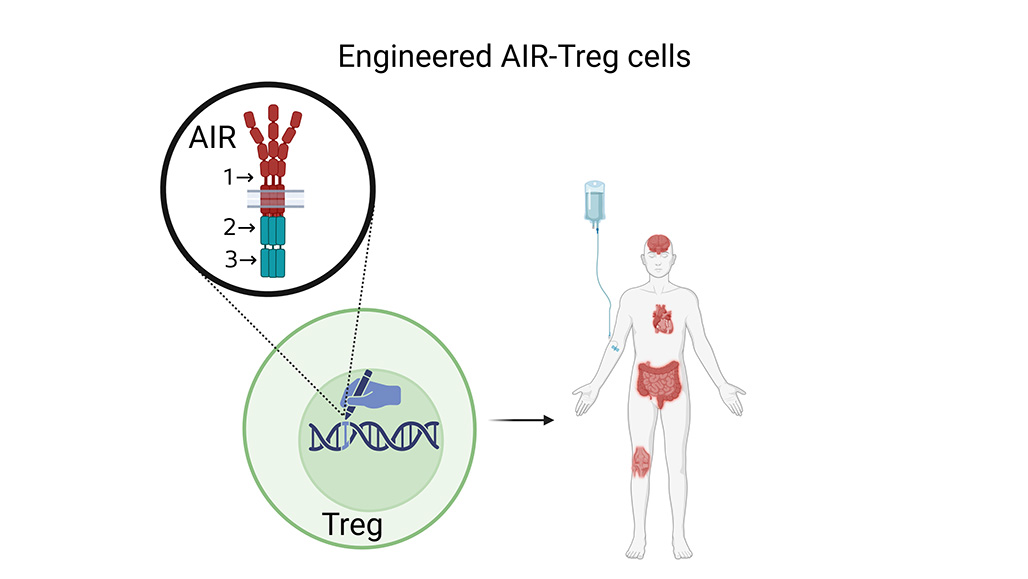AIR – Biosensors for inflammation
Scientists from the Research Division Immunology have developed new types of synthetic biosensors known as artificial immune receptors (AIRs), which can be used to reprogram Treg cells.

AIR-Treg cell therapy concept for treatment of inflammatory and autoimmune diseases (Figure created with BioRender)
Biosensors for inflammation as a novel strategy to engineer regulatory T cells (Treg cells) for cell therapy
Scientists from the Research Division Immunology have developed new types of synthetic biosensors known as artificial immune receptors (AIRs), which can be used to reprogram Treg cells. AIRs consist of three domains:
- An extracellular binding domain of a TNF-receptor (tumour necrosis factor) superfamily member
- An intracellular costimulatory signaling domain of CD28
- A T cell-receptor (TCR) signaling domain of CD3--chain
These AIR receptors equip Treg cells with a novel inflammation-sensoring mechanism and translate this environmental information into a context dependent TCR-activation program. Different AIRs have been generated—which recognize inflammatory ligands of the TNF-receptor superfamily—and lead to the activation, differentiation, and proliferation of AIR-Treg cells. Treg cells can be engineered that target inflammatory ligands and stimulate TCR signaling and activation. These can then be used as a Treg cell-based therapeutic approach for a broad range of inflammation-driven diseases. Read more about the project in PNAS and Trends in Immunology!
Prof. Markus Feuerer
Head of Research Division | Immunology
Tel: +49 941 944–38121
Email: markus.feuerer@ukr.de
Explore our Research Division in greater depth
Get to know our team and find out more about our pioneering research.